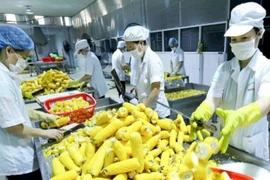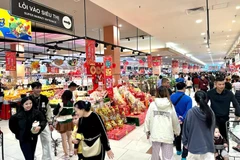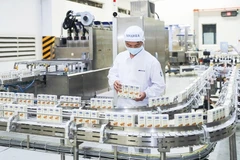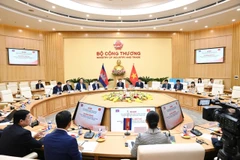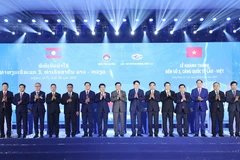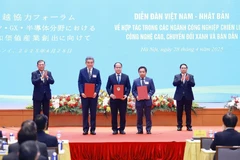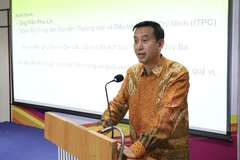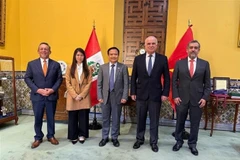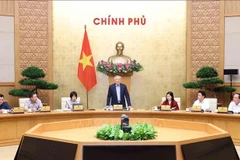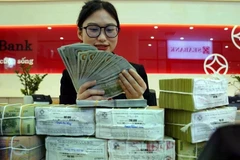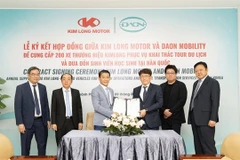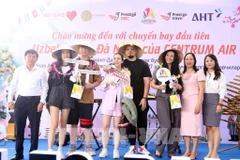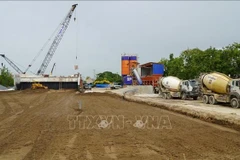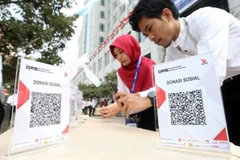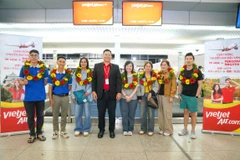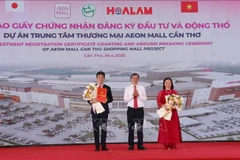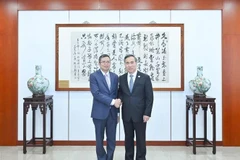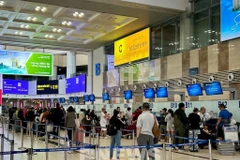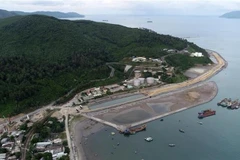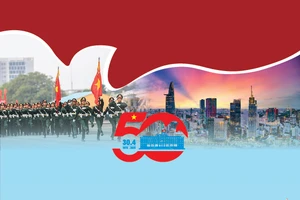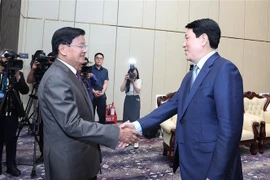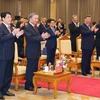 VinGroup's Vsmart phones are distributed in Spain via MediaMarkt electronics retailer. (Photo: enternews.vn)
VinGroup's Vsmart phones are distributed in Spain via MediaMarkt electronics retailer. (Photo: enternews.vn) Hanoi (VNA) - Vietnamese enterprises should dig into newtechnologies to improve product quality and brands so as to better engage inthe global value chains, Minister of Industry and Trade Tran Tuan Anh has said.
Anh, who is also Chairman of the Party Central Committee’s Economic Commission,suggested that technological development within businesses could be madethrough close cooperation with foreign-invested enterprises and encouragingtechnology transfer.
Along with the State’s support policies and mechanisms, enterprises should alsoinvest substantially in technologies while sharpening their focus on humanresources development to master state-of-the-art technologies.
It is necessary for enterprises to participate in the policy consultationprocess to ensure their rights while introducing policies that are beneficialto them, he stressed.
To join the global value chains, enterprises can become suppliers ofmultinational corporations in Vietnam or export supporting products such as automobileparts, electronic products, and materials for the garment-textile and leatherfootwear sectors, he said, highlighting that despite supply chain disruptionscaused by COVID-19, production and business activities in the country havecarried on as normal.
Customs figures show that as of December 15, Vietnam hadexported 5.3 billion USD worth of automobile parts last year, the same amount asin the previous year, and 42 billion USD worth of computers and parts, or ten-foldhigher than in 2019.
Though the garment-textile and leather footwear sectors were battered by thepandemic, they nonetheless brought in 6.9 billion USD, just 1 billion less thanin the same period of 2019.
COVID-19 also transformed global production, making major foreign corporationskeen to shift their production to Vietnam, he said, adding that localsupporting enterprises have seen better integration into the supply chains ofmultinational corporations.
In just two years, Japan’s Toyota Motor Corporation developed 10 tier-1suppliers, while the Republic of Korea’s Samsung admitted 50 enterprises to itslist of tier-1 suppliers and increased its number of tier-2 suppliers from 157in 2018 to 192 in 2020.
Anh described Vietnam’s participation in various free trade agreements as adistinct advantage for the country to attract foreign capital flows.
The country’s success in its dual tasks of preventing the pandemic andpromoting socio-economic development helps improve its prestige as a safeinvestment destination that is resilient to global shocks.
Economists have pointed to several challenges for the country, however, includingweak management capacity, poor infrastructure, a shortage of skilled workers,and cumbersome procedures, among others, he added./.

